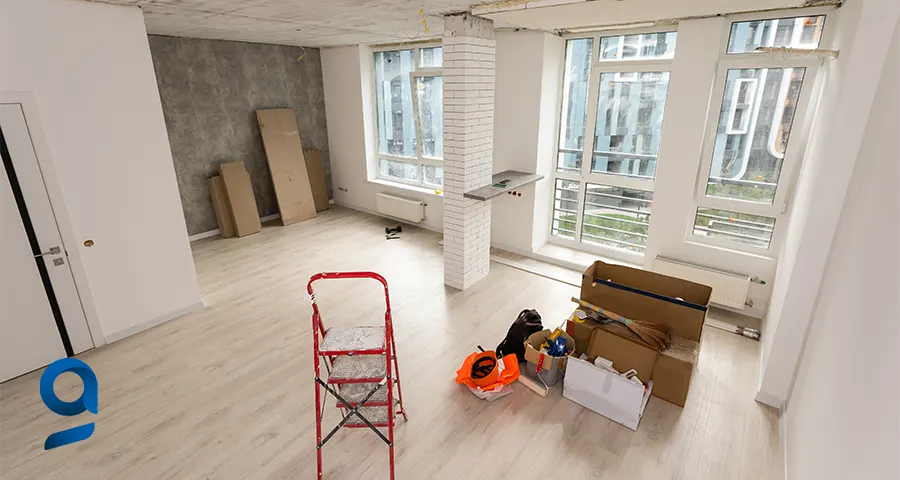House renovation prices can vary significantly depending on various factors such as the size of the property, the scope of the renovation project, the materials used, the location, and the contractor hired. Generally, renovation costs can include expenses for labor, materials, permits, design fees, and unexpected expenses that may arise during the renovation process. House renovation projects can breathe new life into your living space, enhance functionality, and boost property value. However, navigating through small home renovation costs can be daunting. Understanding the factors influencing renovation prices, estimating expenses, and budgeting effectively are crucial for a successful project.

Factors Influencing Renovation Costs
- Scope of Work: The extent of renovation plays a significant role in determining costs. A minor cosmetic custom home builds update will cost considerably less than a full-scale structural renovation involving plumbing, electrical, or architectural changes.
- Materials: The quality and type of materials chosen greatly impact costs. Premium materials will come with a higher price tag compared to standard or budget options.
- Labor Costs: Skilled labor is essential for quality renovation work. Labor costs vary based on location, expertise required, and project duration.
- Permits and Regulations: Obtaining permits and complying with building codes add to renovation expenses. Failure to adhere to regulations can result in fines or project delays.
- Structural Changes: Structural modifications such as removing walls, adding extensions, or altering floor plans incur additional costs due to complexity and potential engineering requirements.
- Unexpected Expenses: Unforeseen issues like hidden water damage, mold remediation, or outdated wiring can arise during renovations, necessitating additional spending.
Estimating Renovation Expenses
- Research and Planning: Begin by researching typical costs for similar renovation projects in your area. Obtain multiple quotes from contractors to compare prices and services.
- Breakdown of Costs: Divide the project into categories such as materials, labor, permits, and contingencies. This breakdown helps in creating a comprehensive budget.
- Use Online Tools: Several online renovation cost calculators can provide rough estimates based on project specifics and location. While not precise, they offer a starting point for budgeting.
- Consultation with Professionals: Engage with architects, designers, or contractors for professional insights and accurate cost assessments tailored to your project requirements.
- Factor in Contingencies: Allocate a contingency fund of 10-20% of the total budget to cover unexpected expenses or changes during the renovation process.
Budgeting Tips for House Renovations
- Prioritize: Identify the renovation areas where negotiation is non-negotiable within your budget and prioritize them accordingly. Allocate the cost to ensure the completion of necessary improvements.
- Flexibility: Remain flexible with your renovation plans to accommodate potential cost fluctuations or unforeseen challenges without compromising on quality.
- DIY vs. Professional Services: Assess your skills and the complexity of the project to determine tasks suitable for DIY and those requiring professional expertise. DIY efforts can save on labor costs but may not always be cost-effective if mistakes occur.
- Phased Approach: If the entire renovation exceeds your budget, consider dividing it into phases. Focus on critical areas first and tackle the rest gradually as finances allow.
- Value-Adding Investments: Invest in renovations that offer the highest return on investment (ROI) such as kitchen or bathroom upgrades, energy-efficient features, or enhancing curb appeal.
- Negotiation and Bargaining: Don't hesitate to negotiate with contractors or suppliers for better pricing or explore discounted options for materials without compromising quality.
In conclusion, understanding the intricacies of house renovation costs is essential for effective budgeting and project management. By considering key factors, estimating expenses accurately, and implementing smart budgeting strategies, you can achieve your desired renovation goals within your financial constraints. Remember to plan diligently, remain flexible, and prioritize wisely to ensure a successful renovation journey. To get an accurate estimate, it's recommended to consult with multiple contractors and professionals, obtain detailed quotes, and carefully review the scope of work and associated costs before proceeding with the renovation project. Additionally, researching average renovation costs in your area and considering any specific factors unique to your property can help in budgeting for house renovation prices.


